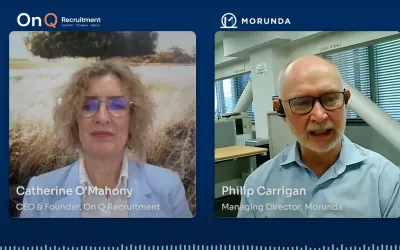
Do practice and experience make the marketer?
Jascha Heifetz, widely regarded as one of the greatest violinists of all time, was once stopped on 57th Street, Manhattan by a pedestrian who stopped him and asked: “Could you tell me how to get to Carnegie Hall?” Heifetz looked honestly at the inquirer. “Yes,” he said. “Practice!”
The most consistent comment I have heard over the past 10 years from marketing directors, both foreign and Japanese alike, is that there is a lack of marketing talent in Japanese pharma companies, whether they are domestic or multinational companies (MNC). Over lunch with the representative director of a major EU company, our conversation turned to marketing talent. He said to me, “Philip, you know we hired this one young guy, 35 or so, from outside of the industry, and within a short time he will be better than our traditional pharma sales/marketing guys; he simply has had more experience and practice in marketing – he knows what marketing is.” So, this begs the question: ‘Do practice and experience maketh the marketer?’
Malcolm Gladwell in his ‘Outliers’ and Matthew Syed’s ‘Bounce – The myth of talent and power of practice’ give countless examples of what it takes to achieve excellence. One of the examples that Syed recounts is a study by Dr. K. Anders Ericsson, Professor of Psychology at Florida State University, who is widely recognized as one of the world’s leading theoretical and experimental researchers on expertise. Ericsson studied three groups of violinists at a world renowned music academy. The first group was in the top 5% of their field – super talented. The next group was also extremely good and would be able to play in a recognized orchestra. The third group comprised students studying to be music teachers. The three groups were remarkably similar in background, interests, when they started studying music etc. However, the major difference was the amount of hours of practice between the three groups. The first group had practiced on average 10,000 hours – over 2000 hours more than the second group, and a whopping difference of 6000 hours – yes, that’s 60% – more than the group training to become music teachers.
Are the marketers in Japan’s leading pharmaceutical companies given enough practice to achieve excellence? Do they receive guidance, knowledge, leadership skills, and time to become experts? Well, here is the issue: The traditional path for a product manager and marketing director is to spend up to 10 years as a medical representative or sales manager and then be rewarded with a position at headquarters as a product manager. The traditional Japanese pharmaceutical marketing managers are excellent sales people (roughly 10,000 hours).
The view is that marketing professionals must have extensive sales experience and a deep understanding of the market from a sales perspective. Yet, a primary outcome is that some marketing departments spend their time preparing marketing materials for their ex-colleague sales representatives!
James Feliciano Marketing Director, Vaccines for Pfizer Japan explains, “In my experience in Japan, the result of having too many sales-oriented marketers is that there is a tendency to jump straight to tactics instead of thinking about the bigger picture, of where your product is and where you want it to go.”
The people entering marketing departments from the field have not been schooled or trained in managing commercial strategy for new products, positioning, pre-marketing, and launch plans. Feliciano explains that they are indeed too sales focused. “Unfortunately, a lot of forecasts are simply ‘straight-lined’ looking at historical sales.” The problem is they know little about coordinating with global brand teams or providing strategic direction to development teams to shape the target product profile, positioning, and life cycle strategy.
In short their 10,000 hours of ‘practice’, of expertise, is in sales not marketing! The traditional marketing manager in Japan’s pharma marketing department may be one hell of a sales person, but it’s impossible for him or her to instantaneously be a star marketer since they simply have not had enough time, practice, or education.
It would be naïve to conclude that the answer is as simple as recruiting talent into the marketing department at a younger age, and somehow magically 10 years and 10,000 hours later the marketing star will emerge. If the marketer, just like the violinist or sportsperson, is going to be at the top of the heap in 10 years, then he or she will need to be coached, trained and challenged every step of the way. Excellence is not just determined by time, but also by the right environment, leadership, training, and evaluation – all are essential. Feliciano preaches a ‘bottom-up, patient-based’ approach to forecasting, dependent on market dynamics and how his team is going to proactively impact those dynamics. The junior marketer needs to be a marketer – to see how the sales element is but one part of a holistic strategy and that all of the pieces – sales tactics, academic conferences, web and other media – all have to work together in harmony to achieve the product positioning goals. And the marketer needs time, experience, and training to develop those awareness’s and skills.
So, ‘do practice and experience maketh the marketer?’ Well, you can’t beat the old adage ‘practice makes perfect’. It’s all these practice elements together that will indeed maketh the marketer.
You may also enjoy
Conquering the Stress of Change
チーム活性化の鍵 (How to Fire Up Your Team)
The Problem with Job Descriptions
Morunda www.morunda.com should be your choice of recruiting partner in Japan and Asia Pacific. Why? Because we live and breathe the pharmaceutical industry in Asia and the Pacific—we’re specialists!
- Morunda has completed over 400 managers to director-level placements since 2001.
- A cultural understanding of what it takes to secure top talent
Over one hundred thought leadership articles published. - We hold regular seminars for candidates and clients alike with industry experts.
- We understand the market, not only today, but where it is heading in the next 12 to 18 months


